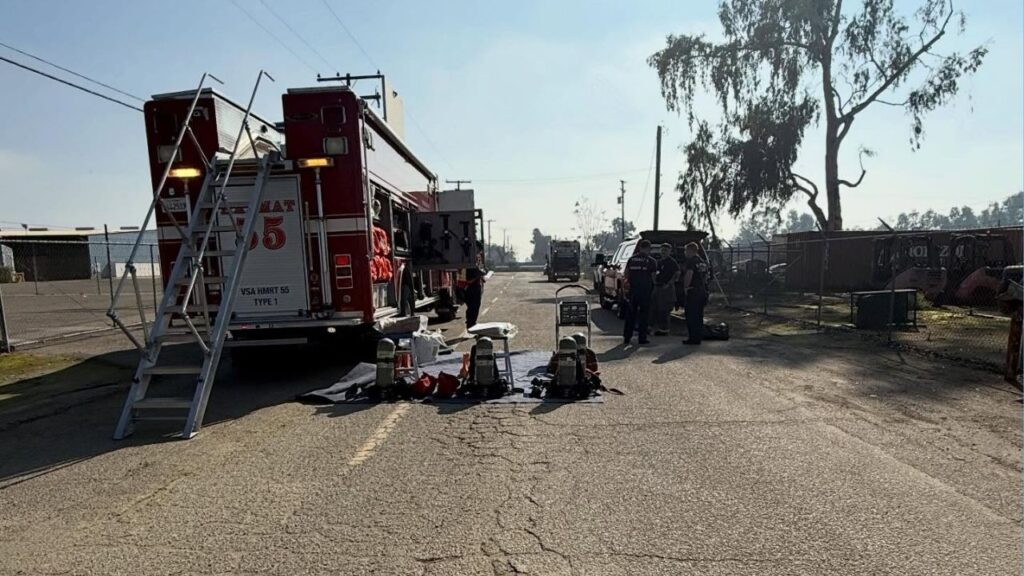California's November election will be shaped by the intrigue surrounding a multitude of statewide ballot measures, causing ideological clashes and financial impacts. (CalMatters/Lauren Justice)

- Democratic dominance in California's political landscape sets the stage for a predictable election outcome.
- The real action comes with the state's ballot measures affecting business, taxes, and criminal justice.
- Several congressional seats are up for grabs, potentially impacting the balance of power in the House.
Share
|
Getting your Trinity Audio player ready...
|
California politics being what they are – deeply blue domination by Democrats – means that many of the races on the November ballot are already decided.

Dan Walters
CalMatters
Opinion
The outcome of Democratic President Joe Biden’s replay battle with Republican predecessor Donald Trump – assuming that both are nominated – is very much in doubt nationally. However, Biden can count on winning California’s 54 electoral votes, probably by a landslide.
Rep. Adam Schiff will be elected to the U.S. Senate over token Republican rival Steve Garvey. Democrats will continue to enjoy supermajority control of the state Legislature.
While Democrats will capture the vast majority of the California’s 52 congressional seats, there are about a half-dozen in play, enough to potentially determine which party controls the House of Representatives.
Related Story: Gender ID Parent Notification Measure Fails to Qualify for California Ballot
The Real Battle: Statewide Ballot Measures
The real action this fall will be the fate of as many as 15 statewide ballot measures: four placed on the ballot by the Legislature’s majority Democrats, one referendum seeking to overturn a new law regulating the placement of oil wells, and potentially 10 initiatives.
Taken as a whole, the ballot measures represent fundamental ideological and cultural clashes – particularly those sponsored by business and aimed at blunting the left-leaning policies of dominant Democrats and their allies. If passed, they would have massive financial impacts.
The scale of the conflicts is most evident in an initiative, sponsored by the Business Roundtable and anti-tax groups, that would make state and local tax increases markedly more difficult to enact.
It hits Democrats and their allied public employee unions where they live and they have mounted a two-pronged effort to block passage: a lawsuit, now pending in the state Supreme Court, to strike the measure from the ballot, and a competing proposition that would impose a higher and potentially prohibitive vote threshold on the tax measure.
June 27 is the deadline for finalizing which measures will appear on the ballot, so both sides of the tax battle are awaiting the court’s decision.
Related Story: Gender ID Parent Notification Measure Fails to Qualify for California Ballot
However, they aren’t the only ones because advocates and foes for four other initiatives still await confirmation that they have enough signatures to qualify. The quartet includes an initiative that would modify Proposition 47, a 2014 ballot measure that reduced penalties for many crimes.
Prop. 47 symbolizes the last decade’s strenuous efforts – through both ballot measures and legislation – to undo the tough-on-crime sentencing laws that were enacted in the 1980s and 1990s, most famously the Three Strikes law.
The laws pushed California’s prison population well past 160,000, an eightfold increase from 1980, resulting in federal court decrees to reduce overcrowding. Since then, the number of felons behind bars has dropped by nearly half, but spikes in crime in recent years have sparked a backlash, encapsulated in the pending ballot measure, which probably will qualify for the ballot.
Gov. Gavin Newsom and legislative leaders are trying to persuade its sponsors to drop the measure by crafting a narrow set of sentencing changes that would leave Prop. 47 intact. As the June 27 deadline nears, whether that effort succeeds is uncertain.
High-Profile Measures and the Financial Stakes
Other high-profile measures either qualified or likely to qualify include a business-sponsored initiative that would repeal the Private Attorneys General Act, a two-decade-old union-sponsored law that makes class action lawsuits against employers relatively easy to file. Others include a third effort to make it easier for local governments to enact rent control, a boost in income taxes on high-income Californians to finance pandemic prevention, and an increase in the state’s minimum wage.
Given the immense financial stakes in these ballot measures, voters will be subjected to hundreds of millions of dollars in radio, television and internet ads. In fact, the propaganda barrage is already underway.
About the Author
Dan Walters has been a journalist for nearly 60 years, spending all but a few of those years working for California newspapers. He began his professional career in 1960, at age 16, at the Humboldt Times. CalMatters is a public interest journalism venture committed to explaining how California’s state Capitol works and why it matters. For more columns by Dan Walters, go to calmatters.org/commentary.
Make Your Voice Heard
GV Wire encourages vigorous debate from people and organizations on local, state, and national issues. Submit your op-ed to bmcewen@gvwire.com for consideration.
RELATED TOPICS:
Categories

Fresno County Authorities Seek Relatives of Deceased 85-Year-Old

Visalia Man Sentenced to Life for Crimes Against Child
















